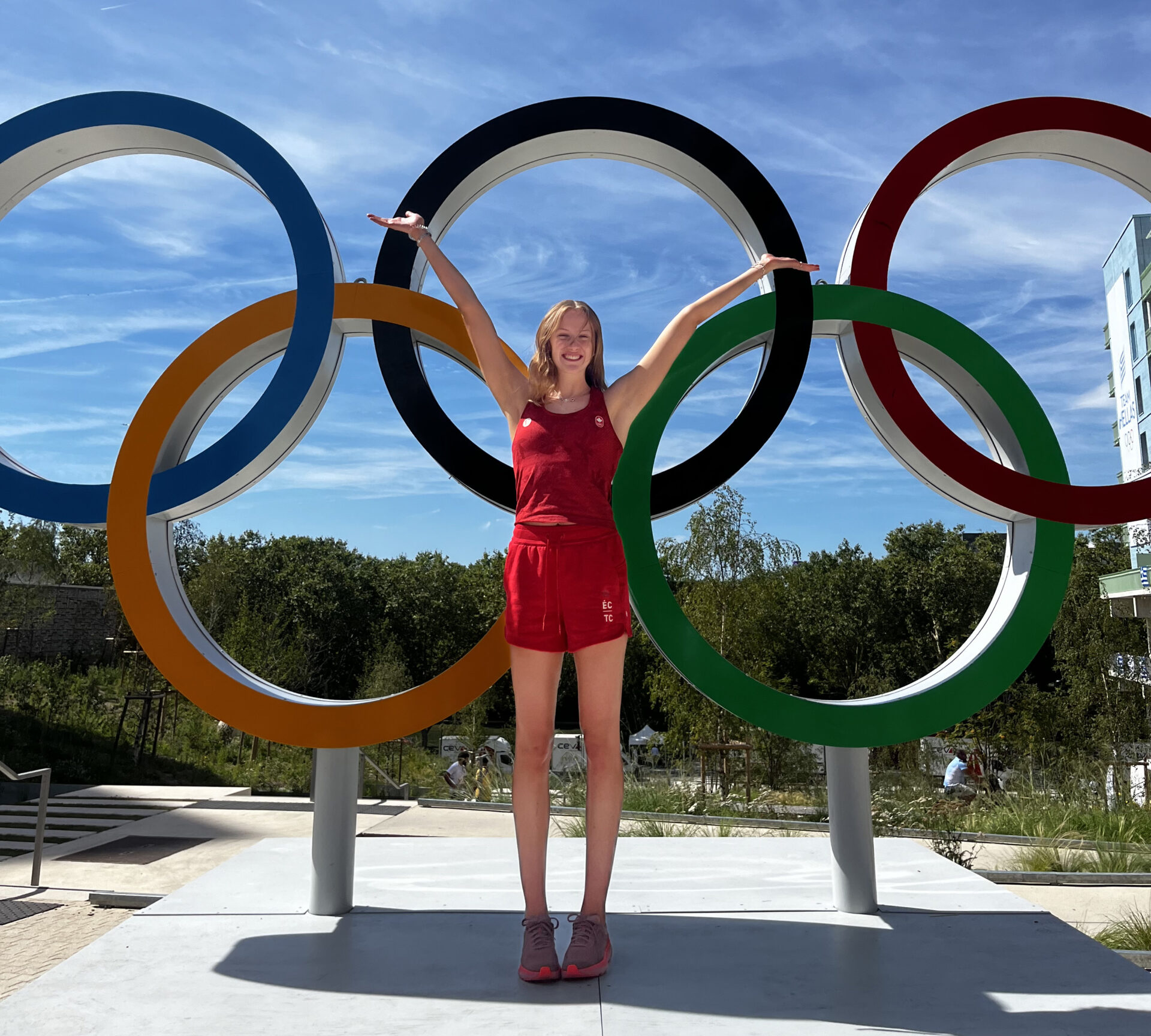For Claire Scheffel, her experience at the 2024 Olympics in Paris, France was an unforgettable one.
Scheffel, who, along with her artistic swimming teammates, were ready to represent Canada and build upon their successful year.
“It really felt like a normal competition on the way there, we left Montreal going to Paris, but we had a layover in Toronto, so all of us we’re in our Canadian Olympic gear…when we landed in Toronto, we were picked up by one of the Air Canada staff, and she ran us through the airport [and] she had a sign that said we were ‘Team Canada’…everyone was cheering for us as we’re running by,” recalled Scheffel. “There ended up being a full parade to get to our plane to Paris…that’s when it kicked in and I thought ‘we’re going to the Olympics!’ After that initial shock, we got to Paris, went to the Olympic village, went to bed and then attended the opening ceremonies when we awoke…we were still a week out from competing, so it was very exciting. We got to soak everything in for that moment before we got refocused and got back to what we needed to do.”
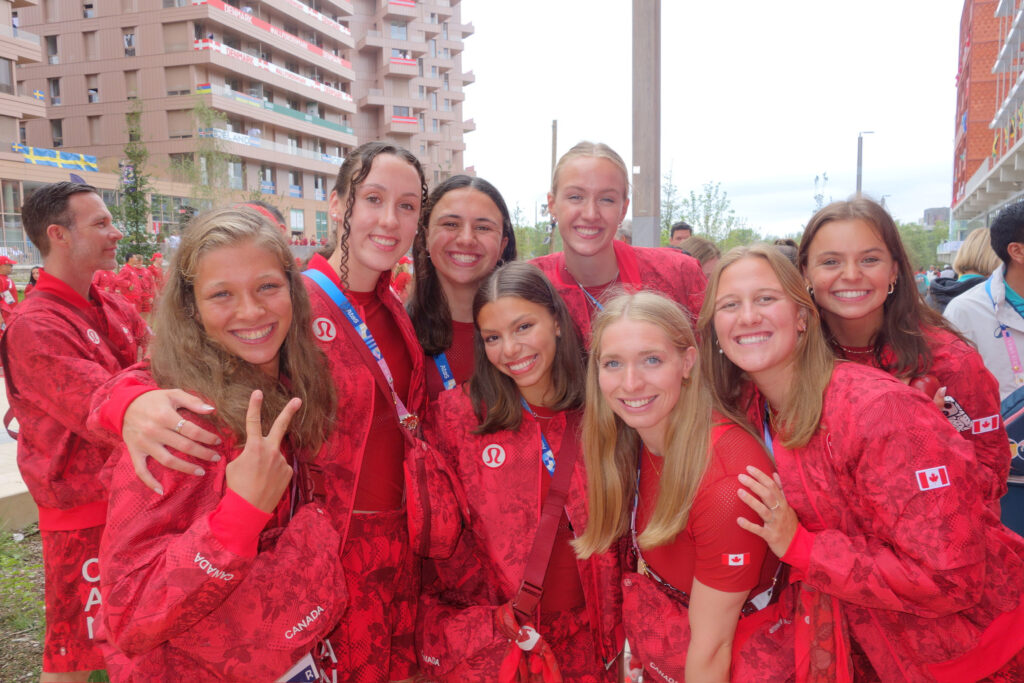
Scheffel, along with her teammates, felt confident going up against some of best in the world in Paris.
“I would say that we were the most prepared that we’ve ever been before. We knew our goals, we knew what we wanted, [and] we knew that our peak was going to be at the Games,” noted Scheffel. “We went in feeling confident, ready to go, and very connected as a team [and] I think we were more excited, rather than being nervous.”
One of the keys to their locked mindset was how they grew as a team, especially as a team, which helped them secure a bronze medal at the Santiago 2023 Pan Am Games.
“Throughout our whole journey [and] facing many challenges…our team has grown so much [and] we’re able to communicate and have those hard conversations, because we knew that it was going to help us in the pool, [and] going to help us enjoy our training, [and] competing a lot more,” explained Scheffel. “And to have had more consistency in our coaching staff [has] made a major difference in our performances…we have been able to be much more cohesive with our synchronization in the pool.”
However, Scheffel, as well as her team, have benefitted from their coaches’ experience.
“They have both gone to the Olympics, [and] one of my coaches is a bronze medalist. Having that knowledge helped us be able to go in with the right mindset. They gave us an opportunity to experience being happy [with ourselves] no matter what happens,” said Scheffel.
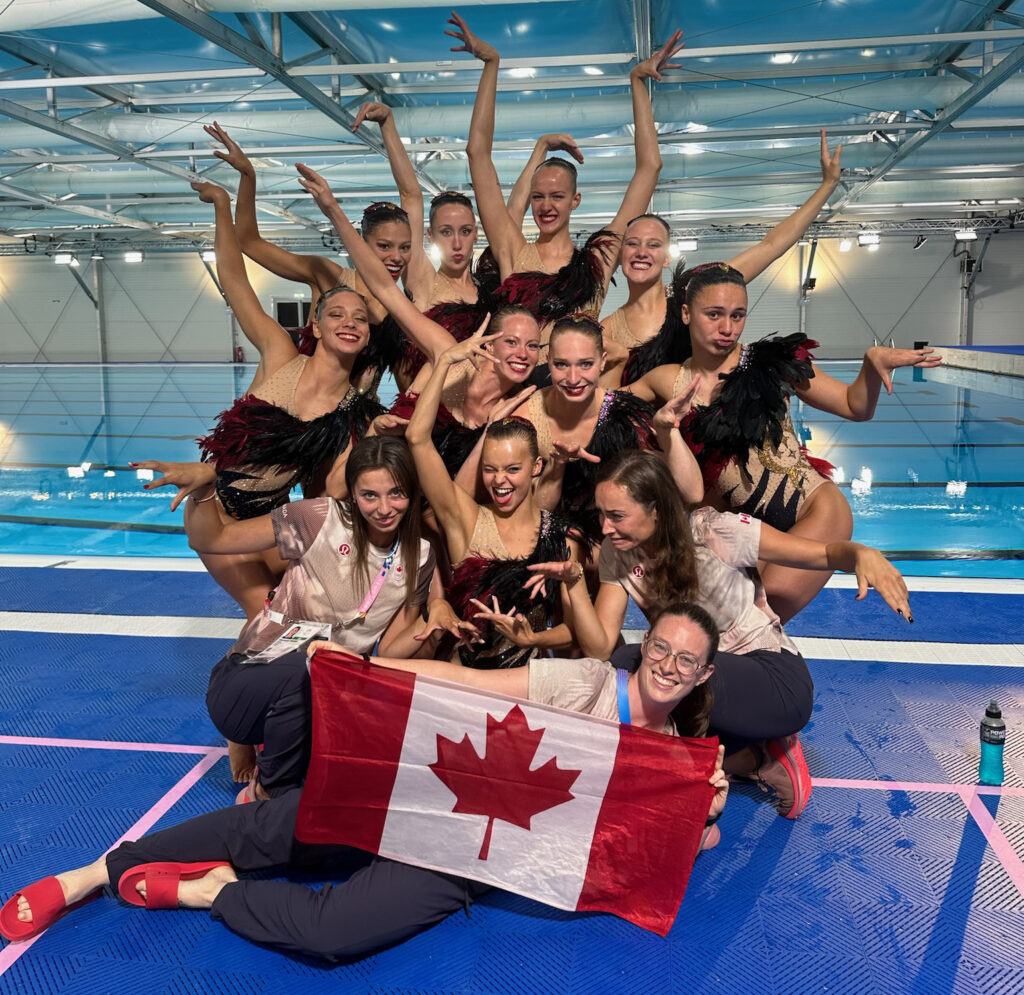
Along with a cohesive team and strong coaching, Scheffel discussed her parents’ importance in her development.
“They always listen to what I need…and it’s been so amazing because there are some parents that I see that are so on top of their kids asking questions [and] trying to have control over them, “said Scheffel. “My parents have always been able to step back and communicate with me: ‘What do you need to hear right now?’ ‘What’s going to help you perform?’ ‘What do you need from us?’ Because they understand that they’re going to give me different things than my coaches or my teammates are. So, they’ve really been supportive and have been there to help me when I need it.”
Nevertheless, Scheffel’s father, Trevor Scheffel, has been a source for her development as he was once a high-performance swimmer.
“It’s so easy for parents to be overbearing when, especially if they may have had a sports background, but my dad has been nothing but supportive and helpful. He was very close to his own Olympic journey…and he has always been there to chat, and it’s been so helpful to me because he fully understands that high-performance sport life and what I’m going through [including the] competitions, the training and all the hard work and everything that goes with it,” said Scheffel.
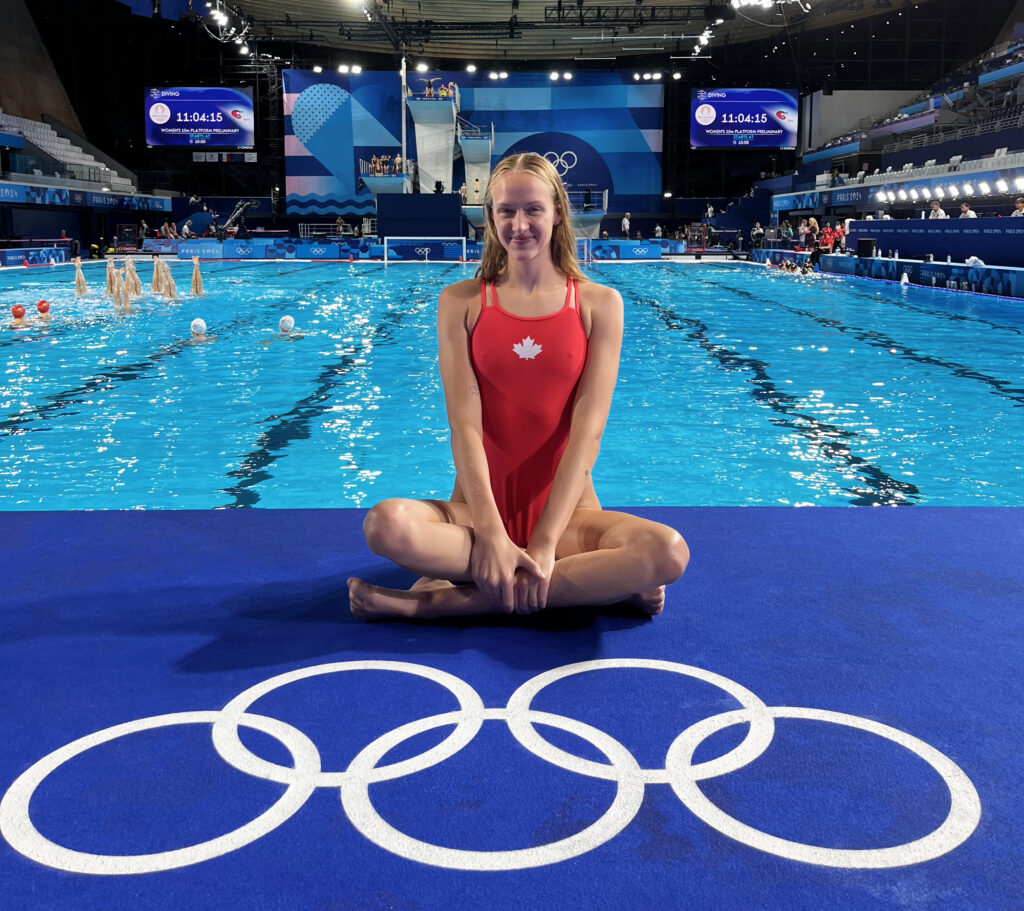
A week before the competitions, the team settled in and focused on training and resting.
“[After] we got to the Olympics village, [and] did our opening ceremony, we went to a smaller town in France to do a full synchro training camp. We were very isolated, but I think it was definitely what we needed. We had lots of time at the pool, [and some] downtime to connect as a team and get our heads in the game,” noted Scheffel. “It gave us some time to settle down…from the excitement of the Games. Because as much as it can be motivating, it can also be extremely overwhelming, and at the end of the day it’s a competition and you definitely have to stay focused.”
When the team was at the Olympic village, Scheffel also found herself being a fan, surrounded by a bevy of Canadian Olympic stars.
“As a Canadian athlete, we’re all in the same house together in the Olympic village. I was a bit awestruck…I was walking by Penny Oleksiak and Andre De Grasse, and I was thinking to myself: ‘I just watched you win a medal last night!’” recalled Scheffel. “It was really special to be able to talk to these other athletes who are living in the same place as you, but experiencing things differently. I got to learn about some other sports [and] had chance to speak to coaches and athletes from all over Canada. It was really special.”
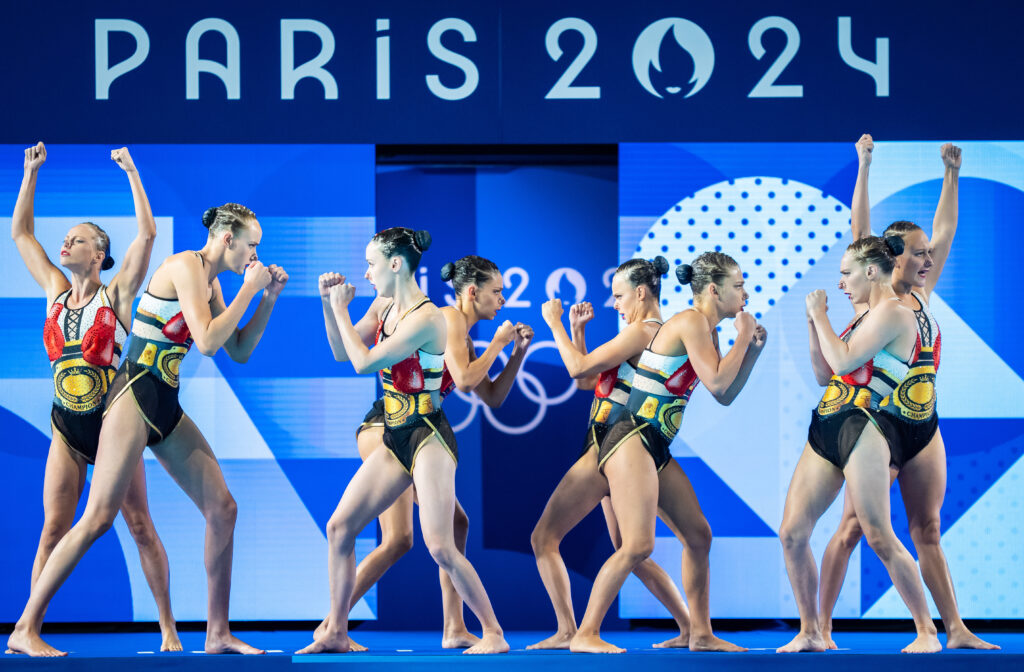
After some time preparing for the first day of competitions, Scheffel and her teammates were ready.
“For me personally, leading up to the first competition, I was feeling really confident. I was feeling very comfortable…we had already done a competition in this pool, and we had a training camp in the same one, so it felt very normal, which is crazy to say when talking about the Olympics. It was the morning of that first competition, and going into music practice, seeing the [Olympic] rings everywhere and all the lights and the judges, and there was a little moment I was thinking to myself: ‘This is a big deal,’” noted Scheffel. “We did our practice, [and] it felt good…our goal has always been to focus on us and as a team. We were focused on the feeling, which is very, very much in our control…I was pretty nervous. We got behind the doors [and] walked out for our swim…I felt the excitement and positive energy from my teammates. I thought to myself: ‘We can do this; we’re ready.’”
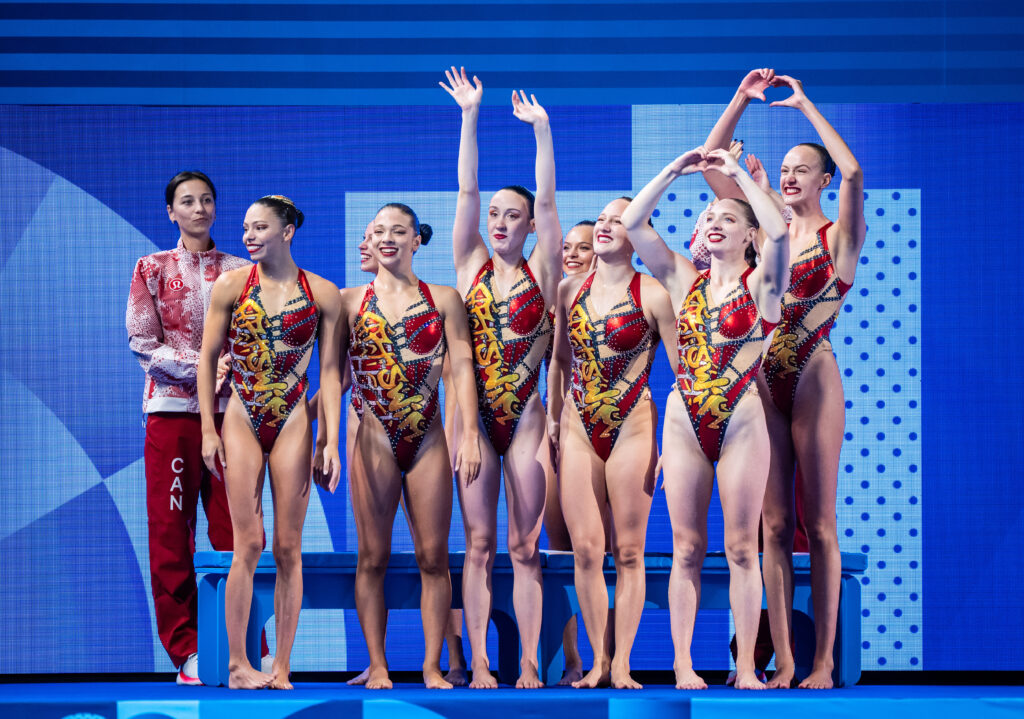
With a strong performance, the team also achieved some history for Canada.
“We performed well, but unfortunately, a couple of the other teams did appeal some of their marks, so they moved ahead of us; from fifth to seventh. At the end of the day, our team was really focused on what we could do. We were happy with the new judging system. There’s something called a base mark, which means, if you don’t complete a small portion of your routine fully, as it’s listed, then you lose a lot of marks. And it’s very easy to get a base mark, and it’s very bad for your routine,” explained Scheffel. “You can lose a lot of points, and you drop very quickly in the rank. We were very happy because our first one was clean [and] I think that gave us confidence going into our second one, which was our Olympic record-breaker in difficulty.”
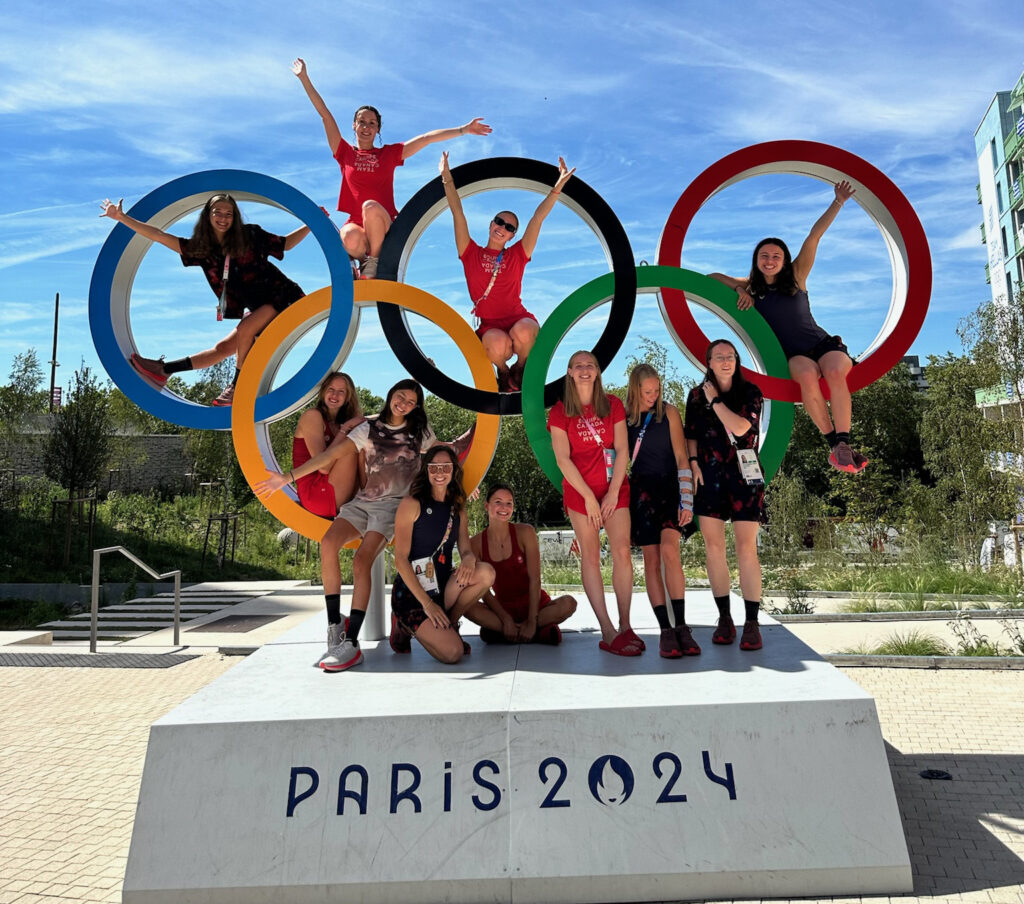
Scheffel also explained that each of her team members has a ritual, and a particular one is her favorite, before competing.
“The one that’s most special to me is we have one teammate who is a very good speaker, so she’s does the run through of our program; which is physically challenging…she sits us down and kind of has a conversation, going through what we need to do, and then right before [we compete]…she looks us all in the eyes and says ‘it’s time for eyes’; So, we all take turns around the circle, and we look her in the eye, and she gives us a little nod. And then we turn to our coaches, and they give us a little eye check…this just gets us feeling connected and helps us get in the zone.”
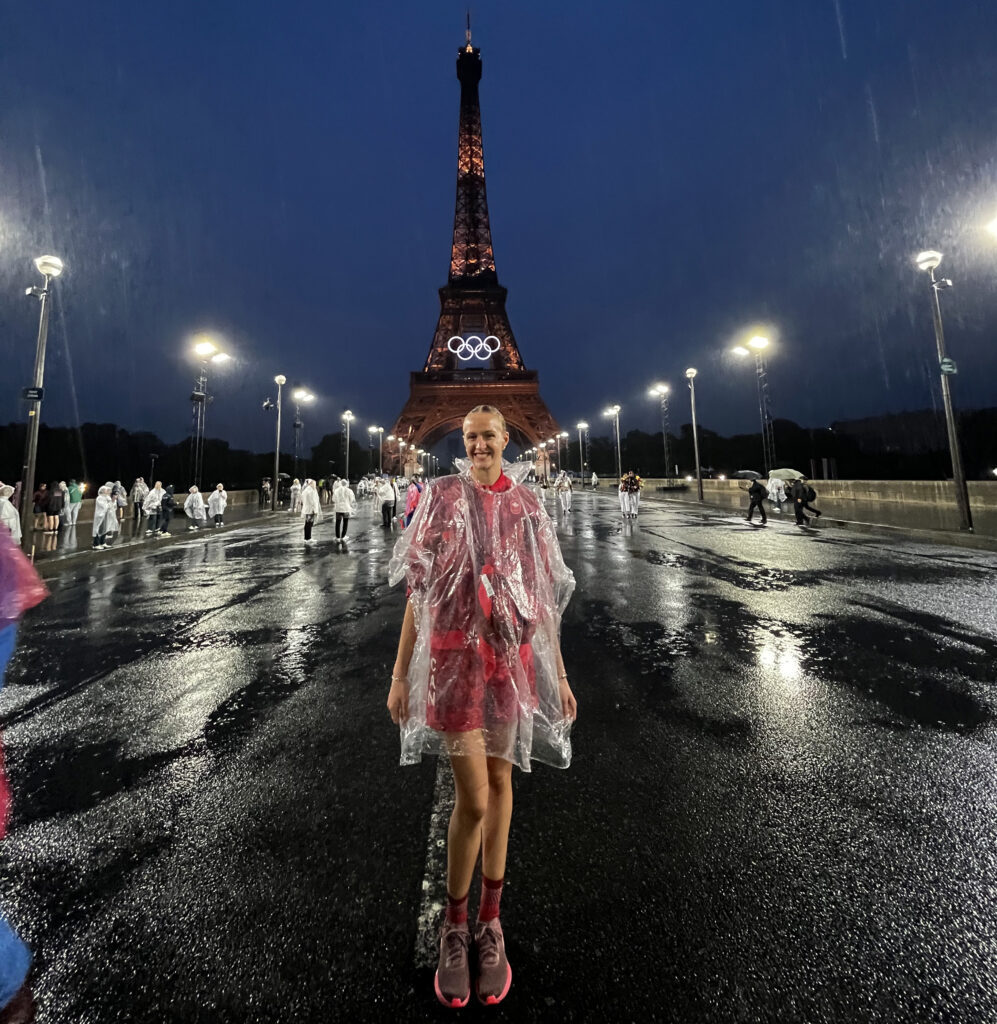
However, for the second and third programs, Scheffel and her team remained confident, finishing sixth at the Olympics.
“Our second program was the heaviest one, being the most marks. And honestly, going into the last day, we were feeling great…we got our full credit for that swim and our last day is our favorite, which is our ‘hip-hop’ routine. We just went into that day feeling excited, feeling very proud of ourselves, and went for it,” related Scheffel. “[After that routine] we were ecstatic. We were jumping up and down, screaming and hugging each other. It was really a beautiful moment…we were really just happy that we had three very solid finishes…I think we pulled out the best possible performances that we could have.”
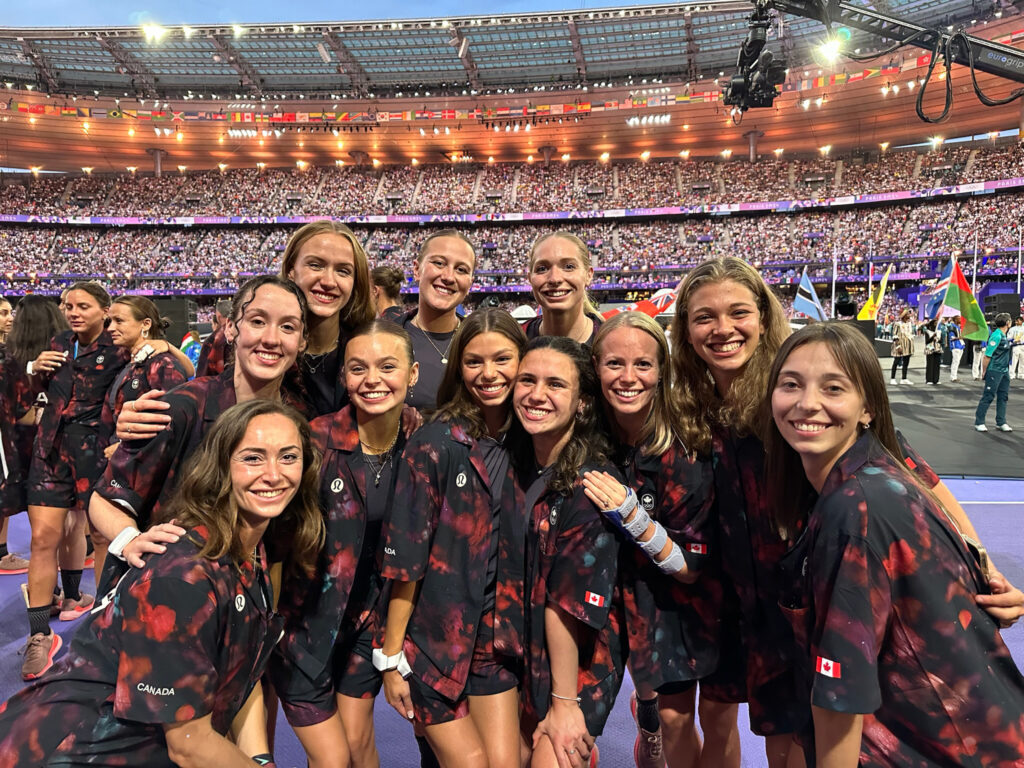
Along with competing, Scheffel treasured her time with her team as well as being part of the opening ceremonies with fellow Canadians.
“The number one memory is definitely being connected with my team like that. It was so beautiful to be surrounded by those people and we finished the swims and they felt good. That’s always going to be a highlight for me. And then another one was the opening ceremonies…it was really special,” reflected Scheffel. “We were surrounded by fellow Canadian athletes and just feeling so connected; it made me feel that I was part of something bigger. We were standing on the stage, and the Eiffel Tower started to light up with a laser light show…then everything went dark. That’s when Celine Dion started to sing [and] most of our team just started crying. It was such a beautiful moment to be a part of, and the fact that she’s Canadian just made it ten times better.”
